News
-
10/06/2021Iberdrola has brought Elecnor and Consonni on board Europe's largest green hydrogen project Iberdola has brought Basque companies Elecnor and Consonni on board what is now Europe's largest green hydrogen project, to help decarbonise the industrial fertiliser manufacturing process at the plant in Fertiberia, in Puertollano, Ciudad Real. These advances will also bring it close to achieving one of its objectives: Development of a value chain around green hydrogen to position our country as a European technological and industrial benchmark in a key energy vector for electrifying industry and heavy transport. Elecnor will be responsible for the electrical assembly of the Puertollano plant and will supply equipment such as electrical panels and cabinets, support, conduits and luminaries. Construcciones Electromecánicas Consonni will manufacture medium-voltage equipment at its Bilbao plant. The latter company is working with Iberdrola on another green hydrogen project to supply a containerised low-voltage electrical substation for the first-ever public hydrogen generation plan, which will supply green hydrogen to buses run by Transportes Municipales de Barcelona (TMB), in the Zona Franca de Barcelona. The green hydrogen plant in Puertollano will become operational the same year, after an investment of €150 million: It is set to become largest industrial green hydrogen complex in Europe to date, producing hydrogen using 20 MW electrolysis systems, which also include a 100 MW photovoltaic facility and an ion-lithium battery system (20 MWh). During the tender process, Iberdrola was impressed by Elecnor's capacity to engineer, manufacture, supply and install electrical equipment and by Consonni's ability to produce medium and low-voltage equipment, and the specialist knowledge of both companies' human resources to enable them to execute these projects. These contracts were awarded as part of Iberdrola's strategy to enter into agreements with companies involved in promoting environmental, social and governance values (ESG). Development of innovative industrial chains with high added value Green hydrogen has massive potential as an energy vector for electrifying industrial processes and heavy transport in particular. It has also been identified as a key solution for decarbonising the economy and developing innovative, high added value industrial chains in Spain and the European Union. Iberdrola has committed to Europe's most ambitious green hydrogen project, in collaboration with Fertiberia, to develop 800 MW of green hydrogen in four phases, at the plants in Puertollano (Ciudad Real) and Palos de la Frontera (Huelva), by 2027. The initiative represents an investment of 1.8 billion euros and will make our country an industrial leader in the green hydrogen sector and the first to have 100% ammonia production for totally green fertilisers. Opportunities for suppliers and employment Iberdrola has presented 53 projects related to green hydrogen to the Next General EU programme, which will activate investments of 2.5 billion euros to achieve an annual production of 60,000 tons. The plant will produce the equivalent of 20 % of all national green hydrogen (installed capacity of 4 GW in 2030) and will guarantee that around 25 % of the green hydrogen currently consumed in Spain is CO2emissions free.. The company expects that this and other hydrogen projects carried out by Iberdrola will encourage economic growth and employment, helping to create approximately 4,000 qualified jobs - 500 of them in local suppliers. READ MORE
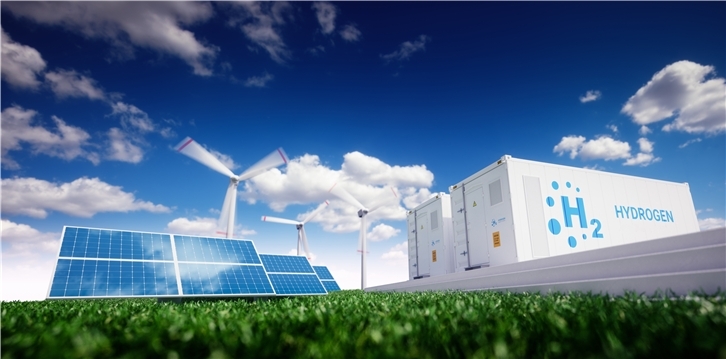
-
09/06/2021Iberdrola and Foresa plan investments in renewable hydrogen for the production of green methanol in Galicia Iberdrola and Foresa analyse the development of investments in renewable hydrogen for the industrial production of green methanol in Galicia. Both companies could tackle the construction of a 20 MW green hydrogen plant - expandable to 200 MW - obtained by electrolysis with renewable energy, as well as the installation of equipment to capture CO2 from biomass combustion plants, therefore increasing its already important carbon capture character. The projects will be co-located at Foresa’s plants in Galicia, and the initial investment - which is eligible for Next Generation EU funds - would exceed 82 million euros; a volume that could reach 400 million if planned expansions are undertaken. In the first phase, green methanol production of 10,000 tn/year would be achieved, which could be scaled up to 100,000 tn/year, therefore preventing the emission of 470,000 tn/year of CO2. The resulting green methanol would be used by Foresa in its chemical processes which would replace the imported methanol it currently uses for the production of wood glues and resins. In this way, the project provides essential support to the forestry value chain - which is strategic for Galicia - achieving greatly reduced emissions in key chemical products. Furthermore, the possibility of increasing production and exporting surpluses to companies that also use this raw material in their industrial processes is also envisaged. Diversification and development of Galician industry and employment The development of a high-tech processing plant would reduce Galician imports of methanol, replacing them with sustainable local production, boost the local chemical, mechanical, metal, electrical, forestry and auxiliary industries and create jobs. It would also contribute to the diversification and long-term development of Galician industry. The investment initiative to decarbonise methanol and tackle its production in Spain would reinforce the region's position as a technological benchmark in green hydrogen use and would represent an opportunity for the country, given that there is currently no domestic green methanol production and intensive demand. The project together with Foresa is part of the 175 initiatives presented or in which Iberdrola participates in the Next Generation EU programme, which would mobilise investments of 30 billion, involve more than 350 small and medium-sized companies in Spain and generate more than 60,000 jobs per year. These projects include 53 hydrogen-related initiatives, which would trigger investments of 2.5 billion to achieve an annual production of 60,000 tonnes/year. Green investments to promote economic recovery Iberdrola has been leading the energy transition for two decades, acting as a key driving force to transform the industrial fabric and in the green recovery of the economy and employment. The company has thus launched a historic investment plan worth 150 billion euros over the next decade, 75 billion euros by 2025, to triple its renewable capacity and double network assets and take advantage of the opportunities offered by the energy revolution that the world's leading economies are facing. In Spain, investments to 2025 amount to 14.3 billion euros, mainly for the deployment of an ambitious plan for renewables and smart grids. In Spain, it is the leader in the renewable sector with an installed capacity of 16,700 MW, which will increase to 25,000 MW with its investment plan up to 2025. Investments worth 120 billion euros over the last twenty years has made Iberdrola a leader in renewable energy with nearly 35,000 MW installed worldwide, a volume that makes its generation fleet one of the cleanest in the energy sector. With emissions of 98 gCO2/kWh, we are already two-thirds lower than the European average, and the strategy of investing in clean energy and networks will lead Iberdrola to be a “carbon neutral” company in Europe by 2030. READ MORE
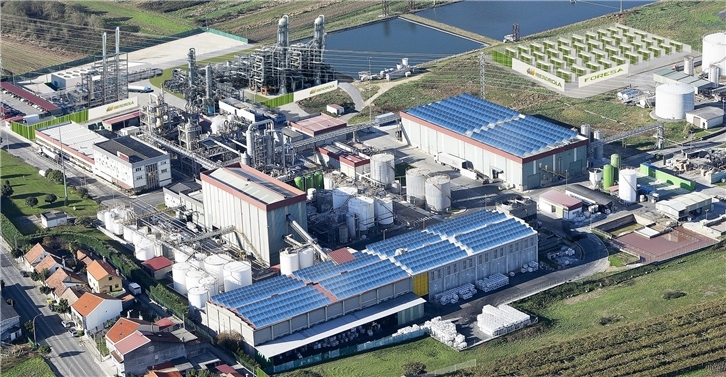
-
07/06/2021The Fundación Iberdrola España is launching its 2022 Social Programme to aid the development and social inclusion of the most vulnerable groups The Fundación Iberdrola España announces its invitation to participate in its 2022 Social Programme , the aim of which is to assist in building a fairer, more inclusive and sustainable society committed to helping its most vulnerable members. This latest programme invites social entities to submit proposals that contribute to reducing inequalities and help to promote future opportunities for those groups at risk of social exclusion, with special emphasis on childhood, adolescence and women. An evaluation committee set up by the Fundación Iberdrola España will select around 30 projects aligned with the UN's Sustainable Development Goals (SDGs) and 2030 Agenda. In this respect, the 2022 Social Programme is prioritising four lines of action specific to this invitation. The first of these concerns projects designed to address child poverty and social exclusion that support low-income households and cover the basic aspects of everyday life, as well as those that develop initiatives that promote education devised to mitigate the most harmful effects of inherited poverty. The second line of action focuses on social inclusion projects aimed at helping disabled boys, girls and young people by supporting the vocational training centres they attend with the offer of a space in which they can develop their skills. The third line involves health and well-being projects aimed at seriously ill vulnerable boys, girls and young people and their families, as well as initiatives designed to prevent and/or treat various types of addiction. The fourth and final line of action centres on providing support to women who are or have been the victims of sexual harassment and domestic violence by seeking to foster their self-esteem and personal independence via a series of opportunities that, in turn, promote gender equality. The entities wishing to apply have until 28 June to submit their proposals, with this being done via a form that can be found on the foundation's website , where the terms and conditions of the invitation can also be consulted. The foundation plans to announcethe successful entities in October, and the projects will be implemented throughout 2022. Over 441 projects have already been supported in collaboration with around one hundred social entities Iberdrola, via the Social Programme of its Foundation in Spain, has allocated more than 11 million euros to social initiatives within the country and helped a total of 414,546 people. Ever since this Plan was first launched in 2010, the company has been the driving force behind more than 441 projects in collaboration with over one hundred social entities, thereby contributing to the fight against child poverty, tutoring and the social insertion of vulnerable children, young people and women. The Social Programme has enabled the creation of 1,630 jobs and the participation of 7,648 volunteers. Another facet of the Fundación Iberdrola España's activities is its grants' programme in the fields of energy, biodiversity and the environment, and research, as well as in the area of culture, where it concentrates on the restoration and upkeep of the Iberian Peninsula's cultural and artistic heritage. READ MORE
-
04/06/2021Valladolid welcomes the 'Prado Museum in the streets' exhibition The "Prado in the Streets" exhibition, sponsored by Fundación Iberdrola España and the Prado Museum, opened in Valladolid this morning, in collaboration with the Government of Castile and Leon and Valladolid City Council. This is the second stop for this travelling exhibition that started in Salamanca and will visit the nine regional provinces to raise awareness and promote the collections and historical heritage of the Prado Museum through a variety of educational programmes and cultural activities. The exhibition, which recreates a visit to the museum with a display of life-sized paintings, offers visits and experience similar to standing in front of the actual work of art. It is open to the public from 4 June to 5 July in Paseo del Principe (Campo Grande) . This successful cultural initiative was officially opened this morning by the Minister of Culture with the Castile and Leon Regional Government, Javier Ortega; the Chairman of the Iberdrola España Foundation, Fernando García; the Deputy Mayor of Valladolid City Council, Ana Redondo, and the Deputy Director of Conservation and Research at the Prado Museum, Andrés Úbeda. The exhibition will bring 50 of the most important works from the Museum's Permanent Collection to the people of Valladolid through life-size photographic reproductions. A journey through the history of Western art This large, open-air exhibition, curated by Fernando Pérez Suescun, Head of Educational Content at the Prado Museum, enables visitors to tour the different artistic schools covered by the Prado Museum's permanent collections and learn about the history of Spain, Europe and Western art in general, as painted by the great masters. The Spanish, Italian, Flemish, French, German and Dutch schools are represented through artists from the 12th century to the early 20th century. The show also has bilingual information panels for each work of art, as well as details on the history of the Museum and its collections. The reproductions are shown at a scale of 1:1, however, due to the dimensions of the exhibition stands, this means that for some of the larger works only a magnificent and fine detail of the work can be seen, with a smaller representation of the entire painting shown in the explanatory panel. In the wake of the enormous success of the exhibition during the celebration of the Museum’s two-hundredth anniversary, “Prado in the Streets" travelled around Castile-La Mancha until 26 April. In just under a year, thousands of visitors have had the chance to behold some of the wonders the Museum holds thanks to these accurate reproductions, spreading culture across the region with daily visits that never failed to observe the applicable anti-COVID-19 rules. “The Prado in the streets” started its tour of Castile-Leon in Salamanca on 30 April, and for the next ten months it will stop off at other cities in the region as well as Salamanca and Valladolid, where it opened today, the other cities it will visit include Leon, Aguilar de Campoo, Burgos, Soria, Segovia, Ávila and Benavente. The Fundación Iberdrola España is a Protector member of the Prado Museum The Fundación Iberdrola España focuses a key part of its activity on caring for and maintaining Spain’s cultural and artistic wealth. The Foundation has been working with the Prado Museum since 2010 by supporting the gallery’s preservation and restoration programmes, as well as offering four annual grants for young restorers. It was also keen to join in the Special Programme for the Prado Museum’s bicentenary celebrations, especially with the launch of this travelling exhibition in Spain. Since 2011, Fundación Iberdrola España has allocated a total of €13 million to art and culture, focusing its resources primarily on the Restoration Programme to support the restoration workshops in leading museums for the conservation of their pictorial and artistic heritage. The Foundation also supports the Lighting Programme, which includes the design, implementation and financing of artistic projects to light iconic buildings and monuments. READ MORE
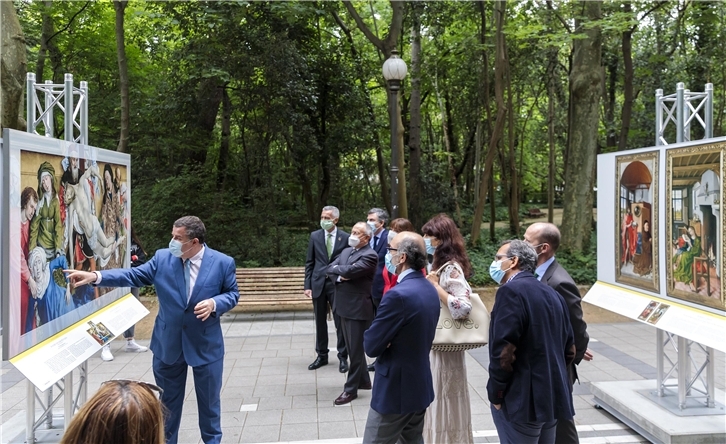
-
03/06/2021Ignacio Galán attends a meeting of the Board of Trustees of the Elcano Institute, presided over by his Majesty King Felipe VI of Spain The chairman of Iberdrola, Ignacio Galán, took part in a Board of Trustees meeting of the Elcano Royal Institute, an organisation under the honorary presidency of H. M. King Felipe VI. The event was attended by other political office-holders and leaders of private enterprises that sit on the Board of Trustees. The Elcano Royal Institute is one of Europe's top think tanks, focused on foreign policy and strategy. It is a high-level forum for debating and reaching a consensus on the major global issues affecting society. Created in 2001, the Elcano Royal Institute’s organisational structure balances public and private interests and fosters the exchange of ideas in a plural and independent environment, accommodating diverse political and social outlooks. READ MORE
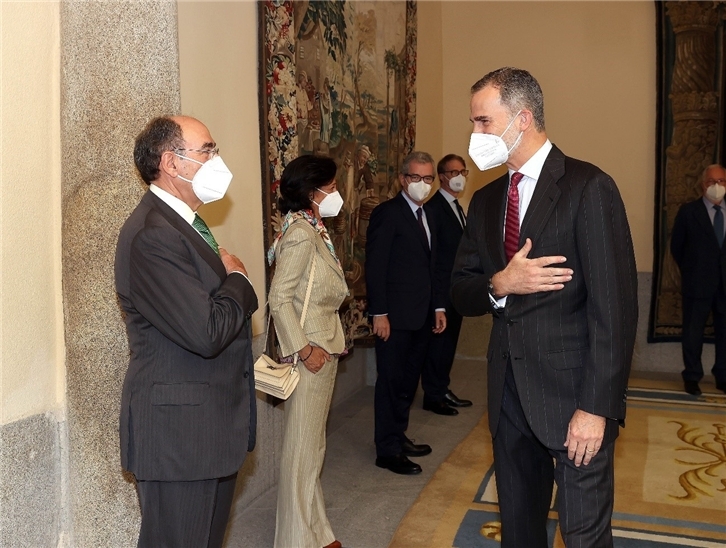
-
03/06/2021Iberdrola and RB Iberia to install 400 electric vehicle charging points in restaurants Iberdrola has reached an agreement with Restaurant Brands Iberia (RB Iberia), the group that holds the master franchise operating rights for Spain and Portugal for the Burger King®, Tim Hortons® and Popeyes® brands, for the installation of up to 400 fast and super-fast electric vehicle charging points in Spain. With this initiative, Iberdrola continues to accelerate its sustainable mobility plan, which foresees the installation of 150,000 electric chargers in homes, businesses and on public roads, and its transport electrification strategy to move towards an emission-free economy. Through this agreement, RB Iberia is moving forward in its commitment to full sustainability in undertaking its activity and to reducing its carbon footprint, using its network of restaurants to promote the use of electric cars. RB Iberia will install up to 400 electric vehicle charging points during 2021, which will be distributed across nearly 200 free standing model restaurants (independently built, chalet-style restaurants) of the Burger King® and Popeyes® brands. In addition, the group plans to incorporate around 100 new vehicle charging points in newly built free standing restaurants each year. RB Iberia’s new facilities for promoting sustainable mobility will save 6,000 tonnes of CO2 per year and will have a positive impact on air quality similar to that of three million new trees The agreement between the two companies, which is exclusive for the next 10 years, includes the installation and maintenance of super-fast (150kW), fast (50kW) and semi-fast (22kW) charging points in Burger King® and Popeyes® car parks in Spain, although it could be extended to Portugal in a second stage. With this infrastructure, while users are enjoying their meals they will be able to charge the battery of their electric cars in approximately 15 to 30 minutes, with 100 % green energy from clean energy sources. RB Iberia wants to use its extensive network of restaurants to contribute to sustainable mobility and, therefore, the service will be available to any user, with no obligation to eat in the restaurant. The chargers, located in the car parks of Burger King® and Popeyes® restaurants, will be geolocated and users will be able to manage charging from the Iberdrola Public Charging app, the only one in Spain that includes verified information on all electric vehicle charging points, both Iberdrola points and those of other operators. The application allows users to locate the nearest charge point, as well as reserve and pay with their mobile phone. With this initiative, Iberdrola progresses in its plan to roll out sustainable mobility infrastructure across the country. “This agreement confirms the need to continue collaborating with all the agents involved in sustainable mobility. Burger King® and Popeyes® are an excellent ally with which to advance in implementing solutions for the electrification of transport, which respond to the challenges of decarbonisation and to improving air quality in our cities and municipalities”, explains Alfonso Calderón, commercial director of Iberdrola Spain. “This agreement represents another important step forward in RB Iberia’s commitment to sustainability, aimed at reducing the carbon footprint of our restaurants, which are at the heart of our business. We are particularly pleased to be able to use our extensive network of restaurants with parking to contribute to sustainable mobility in Spain together with Iberdrola”, said Gregorio Jiménez, President of Restaurant Brands Iberia. A key step in the transition process towards being a sustainable restaurant business This initiative is part of RB Iberia’s global sustainability strategy, which is focused on contributing to reducing the environmental footprint of its activity, sourcing sustainably and investing in the people and communities where it has a presence. The sustainability strategy includes a particularly significant commitment to the construction of increasingly sustainable restaurants. Since 2019, the group has been committed to promoting the free standing (chalet-style) format in newly opened restaurants, designed to reduce their environmental impact, from the sustainable techniques and materials used in the construction of the buildings, to the type of lighting used and the responsible management of water and waste generated in our premises. The group has more than 500 of its own restaurants in Spain and, as part of its commitment to energy saving, is carrying out an ambitious energy self-consumption plan to install photovoltaic panels in nearly 300 restaurants in Spain. Electric mobility and green recovery Iberdrola continues its commitment to transport electrification in its transition strategy towards a decarbonised economy, as a key way of reducing emissions and pollution and ensuring the green recovery. The company is rolling out a sustainable mobility plan , with an investment of 150 million euros, with which it will increase its roll-out of electric vehicle charging points over the coming years. The initiative entails installing around 150,000 charging points in homes, companies and on the public road network in cities, as well as on the main motorways and roads. The commitment to deploying high-efficiency charging points will include the company installing ultra-rapid (350 kW) charging points every 200 kilometres, super-rapid points (150 kW) every 100 kilometres, and rapid (50 kW) points every 50 kilometres. Iberdrola is aware of the need to boost electric mobility in Spain through coordinated, effective action involving the major players. The company continues to identify opportunities to generate an industrial, commercial and innovation ecosystem to consolidate the development of sustainable mobility. As a result, it has now completed more than 50 infrastructure roll-out agreements with government departments, institutions, companies, service stations and vehicle dealers and manufacturers. Iberdrola is the first Spanish company to sign up to The Climate Group's EV100 initiative, which has the objective of speeding up the transition to electric vehicles, by committing to electrifying its entire vehicle fleet and streamlining the charging process for staff at its businesses in Spain and the United Kingdom by 2030. READ MORE
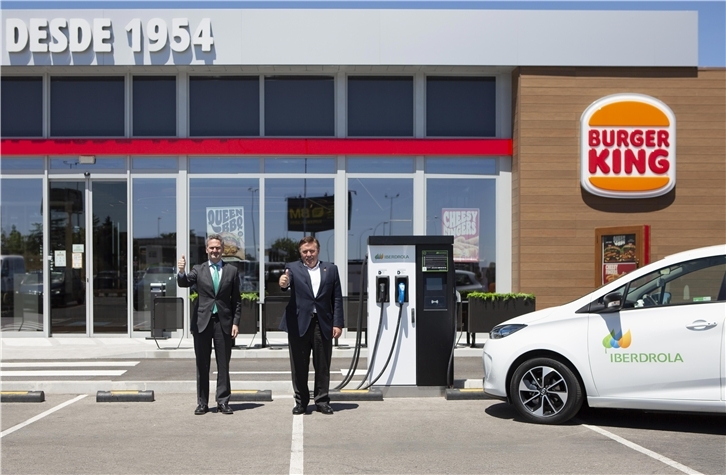
-
02/06/2021Iberdrola acquires the first 1,000 Supernova fast chargers from Wallbox Iberdrola is acquiring the first Supernova fast chargers from the electric vehicle smart charging manufacturer Wallbox, that it will install globally, in the markets in which it operates. This agreement was announced by the Chairman of Iberdrola, Ignacio Galán, and the Co-Founder and CEO of Wallbox, Enric Asunción, at the commissioning of the first prototype of this charge point at the energy company’s headquarters in Madrid. With this agreement, Iberdrola continues to accelerate its global electric mobility investment plan. The agreement also supports a new business line from Wallbox, fast recharging on public roads, and contributes to the company’s continued growth. Iberdrola has been the main shareholder in Wallbox since June 2019. At the launch of the first Supernova, Ignacio Galán, Chairman of Iberdrola, stressed “the need to work with determination to achieve an emission-free economy, creating development opportunities for our industry and generating new quality jobs. The agreement strengthens the ties between a technology company, such as Wallbox, with a global energy leader such as Iberdrola, and reaffirms our commitment to put all our resources and knowledge at the service of a more sustainable society”. Enric Asunción, co-founder and CEO of Wallbox, commented: “This agreement inaugurates an important stage for the growth of Wallbox in the public fast recharging segment and we could not be prouder that it is hand-in-hand with Iberdrola. After years collaborating in the residential recharging sector and thousands of Wallbox chargers installed, they are now also betting on our cutting-edge technology in public recharging.” Supernova has a power output of 60 kW that gives electric vehicles a range of 100 km in a recharge time of just 15 minutes. Its modular design makes it energy efficient and suited to mass production, helping to speed up the deployment of charging infrastructure for electric vehicles on public roads. Supernova is easy to install and maintain, making it very competitive for the sector. The Supernova will be produced for the European market during the second half of the year in Wallbox's new sustainable factory, which will employ 350 people in Barcelona’s Zona Franca. In April, Iberdrola and Wallbox reached a long-term on-site Power Purchase Agreement to produce, consume and reuse energy from the production of this plant and its offices in Barcelona’s Zona Franca. Iberdrola's investment will equip the Wallbox factory with photovoltaic solar panels that will produce 1,500 MWh/year for self-consumption, equivalent to the consumption of 500 homes. Under the alliance, Wallbox will meet its objective of operating with energy independence in its facilities and reduce its carbon footprint, putting itself at the forefront of productive energy management by supplying itself mainly with solar energy. 10,000 chargers for residential use The agreement reached between the two companies in the field of fast recharging on public roads complements the purchases of up to 10,000 chargers made by Iberdrola from Wallbox in recent years for residential use; a market in which the company is one of the world leaders. The Pulsar and Pulsar Plus units from Wallbox are part of the deployment of electric vehicle charging infrastructure being developed by Iberdrola, which involves installing 150,000 charge points by 2025, both on public roads and in companies and for individuals. In line with its strategy of accelerating investment to drive the energy transition, Iberdrola has awarded contracts worth 50 million euros to 20 small and medium-sized companies in 11 autonomous regions in recent months to install charge points and fast, super-fast and ultra-fast charging solutions in Spain. These contracts will create jobs for 200 people. Iberdrola is helping to raise the profile of the infrastructure installation industry and charge solutions for electric vehicles, acting as a driving force in the value chain in future sectors and contributing to the recovery of the economy and job market. The company also continues to promote sustainability criteria among its suppliers, as it has required environmental, social and governance (ESG) compliance levels from all of them. Electric mobility and green recovery Iberdrola continues to push its stance on transport electrification as part of its strategy for a decarbonised economy, as a key factor in reducing emissions and city pollution, as well as for a green recovery in the post-Covid world. The company is delivering a sustainable mobility plan , with an investment of 150 million euros, with which it will intensify the deployment of charge points for electric vehicles in the coming years. The initiative entails installing approximately 150,000 charging points in homes, companies and on the public road network in cities, as well as on the main motorways over the coming years. The commitment to deploying high-efficiency charging points will include the company installing ultra-rapid (350 kW) charging points, super-rapid points (150 kW), and rapid (50 kW) points. Iberdrola is aware of the need to boost electric mobility in Spain through coordinated, effective action involving the major players. In this regard, the company has already completed more than 50 infrastructure deployment agreements with administrations, institutions, companies, service stations, dealers and electric vehicle manufacturers. It was the first Spanish company to sign up to The Climate Group’s EV100 initiative, with the aim of accelerating the transition to electric vehicles, committing to electrify its entire fleet of vehicles and facilitate charging for staff in its businesses in Spain and the UK by 2030. READ MORE
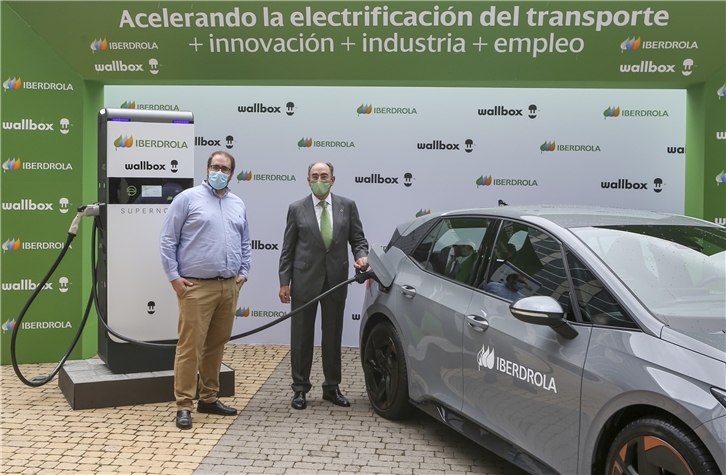
-
31/05/2021Iberdrola entrusts its Board of Directors with responsibility for climate action Iberdrola has convened its General Shareholders' Meeting for 18 June, where Climate Change will be a priority matter for consultations and voting by the company's shareholders. The Board will be consulted about the company's climate policy and, in a pioneering move, the meeting will be asked to approve a reform of the Articles of Association to make the members of the Board of Directors responsible for approving and producing regular reports on a climate action plan, to enable Iberdrola to achieve global climate neutrality by 2050. This change will strengthen climate governance by assigning responsibility and commitment to the Board. The group's highest management body will, therefore, become directly involved in the fight against climate change, in line with its commitment to achieving zero net emissions by 2050 or sooner. It will also set intermediate targets for reducing direct and indirect emissions and establish science-based objectives aligned with those in the Paris agreement, setting a strategy and investment policy consistent with emissions objectives and defining methodologies for evaluating compliance. Once the new measures are approved, the Board of Directors will be responsible for approving and updating the climate action plan, and for issuing annual climate management reports as of next year. The new role assigned to the Board is another step forward with the group's Climate Action Plan which will be put to the shareholders for an advisory vote, furthering Iberdrola's intention to share with and involve all stakeholders in the company's basic principles and positioning and the lines of action implemented in its strategy to fight climate change with 2030 and 2050 endpoints, as well as in the growth of the group. Iberdrola's climate action policy also involves the creation of a climate plan to establish priority lines of action for contributing to the electrification of the economy. To do this, the group is supporting regulatory initiatives to encourage measures such as electric mobility and heat pumps; "the polluters pay" principle, eliminating subsidies for high-emissions technologies and sectors, analysing risks derived from climate change and, in general, developing a real, global energy transition. The content of the Climate Action Policy is aligned with the recommendations from the Task Force on Climate-related Financial Disclosure (TCFD), a benchmark climate reporting platform that establishes guidelines for integrating climate change in internal strategic planning and decision-making processes and long-term risk analysis, management and reporting. Iberdrola is firmly committed to SDG 7 and 13 on climate action in the United Nations' 2030 Agenda, and has already set ambitious objectives in this regard. The company is making progress to achieving climate neutrality in Europe in 2030 and globally by 2050. As part of this process, Iberdrola will reduce its global CO2 emissions intensity by 73 % by 2030 with respect to 2015 to 50 gCO2/kWh and will be globally carbon-neutral by 2050 or sooner. These targets are coherent with Iberdrola's strategy, which entails investments totalling €75 billion by 2025 - rising to €15 billion by 2030, mainly earmarked for developing more renewables and smart grids, which will make it possible to double renewable capacity to 60 GW during the period, which will reach almost 100 GW in one decade. Iberdrola's climate action policy The climate action policy will establish a framework for organising the group's strategy and business model in a manner consistent with its commitment to the fight against climate change. The company has made environmental performance and the fight against climate change a key area of governance and sustainability, which is inspired by the highest standards in terms of climate governance. In this regard, it is aware of how its activities contribute to climate objectives, and the need to have adequate capacity and suitable mechanisms to adapt to climate change. Hence its commitment to play a leading role in the fight against climate change, either directly or by forming alliances with other agents; promoting a social culture aimed at raising awareness among all stakeholders on the magnitude of this challenge and the benefits of achieving it; considering the impact of this phenomenon on the group's activities and having an active, determining impact on achieving a carbon-neutral, sustainable future, reducing the environmental impact of all its activities and encouraging the adoption of all available measures. Climate action plan To fulfil its commitment, Iberdrola has a six-point climate action plan: * Contribute to the mitigation of climate change and the decarbonisation of the energy model; * Support international negotiations and significant participation by the private sector; * Maintain global leadership in renewable energies, smart grids and efficient technologies; * Integrate climate change in internal decision-making processes, as well as in long-term risk analysis and management for the Group; * Foster a culture of energy efficiency and responsible use of energy; * Promote training and climate awareness among stakeholders and the adoption by suppliers of suitable policies. READ MORE







